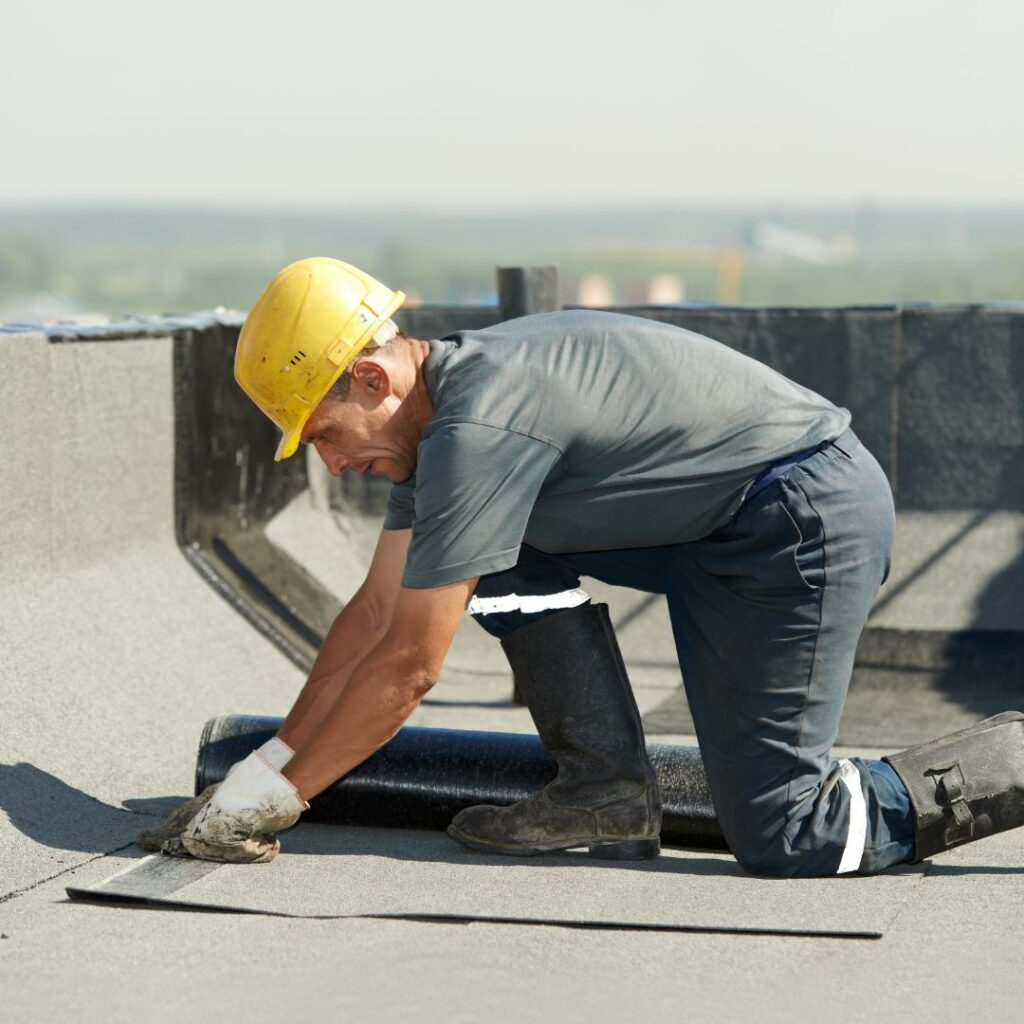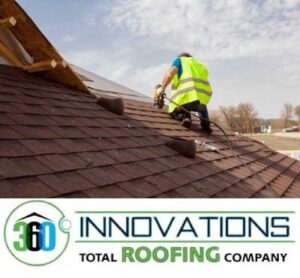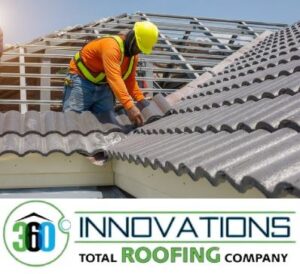

Texas is known for its unpredictable weather scorching heat, high winds, hailstorms, and heavy rains. Whether you’re a homeowner, facility manager, or property developer, the right roofing solution can mean the difference between long-term durability and frequent repairs. At 360 innovations roofing services, we specialize in tile roofing, metal roofing, industrial roofing, and commercial roofing, engineered to withstand the unique demands of Texas and surrounding regions.
This guide breaks down the technical specifications, use cases, and benefits of each roofing system to help you make an informed decision.
Tile Roofing: A Blend of Aesthetics and Longevity
Technical Overview
| Component | Specification |
| Material Options | Clay, Concrete |
| Weight | 600–1,100 lbs/square |
| Underlayment | Modified bitumen, synthetic felt |
| Lifespan | 40–100 years |
| Wind Resistance | Up to 150 mph (with proper fastening) |
| Fire Rating | Class A |
Best For:
- Residential homes
- Mediterranean, Spanish, or Mission-style architecture
- High-end neighborhoods and HOA-regulated communities
Technical Benefits:
- Excellent thermal insulation
- Natural air circulation beneath tiles reduces heat buildup
- Fireproof and low maintenance
User Consideration:
Due to its weight, tile roofing often requires structural reinforcement. It’s ideal for property owners who prioritize aesthetics and are willing to invest in long-term durability.
Metal Roofing: Lightweight and Energy-Efficient
Technical Overview
| Component | Specification |
| Material Options | Galvalume, Aluminum, Steel, Copper |
| Coating Types | PVDF, Kynar 500, Cool Roof Coatings |
| Panel Profiles | Standing Seam, R-Panel, Corrugated |
| Lifespan | 40–70 years |
| Wind Resistance | 140–160 mph |
| Fire Rating | Class A |
Best For:
- Both residential and commercial properties
- Agricultural buildings
- Areas with intense sun exposure or hail risk
Technical Benefits:
- Reflects solar radiation, lowering cooling costs
- Low weight (40–135 lbs/square) reduces structural stress
- Resistant to rust and corrosion with proper coating
User Consideration
Metal roofs can be noisier during rain unless installed with acoustic underlayment. Fastener systems (exposed vs. concealed) impact maintenance frequency and aesthetics.
Industrial Roofing: Engineered for Performance and Load Capacity
Technical Overview
| System Type | Specification |
| Common Materials | TPO, EPDM, PVC, Built-Up (BUR), Modified Bitumen |
| Roof Structure | Flat or Low-Slope |
| Insulation | Polyiso, EPS, or Spray Foam |
| Lifespan | 15–30 years (depends on system) |
| Fire & Chemical Resistance | High (especially PVC & BUR) |
Best For:
- Warehouses
- Manufacturing plants
- Distribution centers
Technical Benefits:
- High load capacity for HVAC and solar systems
- Customizable for ventilation and exhaust systems
- Seamless membranes available for watertight protection
User Consideration:
Industrial roofs must meet OSHA and local code requirements. Routine inspections and thermal imaging are often needed to detect underlying damage in flat membrane systems.
Commercial Roofing: Built for Scale and Efficiency
Technical Overview
| System Type | Specification |
| Common Materials | TPO, Modified Bitumen, Spray Foam, Metal |
| Drainage Systems | Internal drains, Scuppers, Gutters |
| Reflectivity (Cool Roof) | > 70% Solar Reflectance (TPO/PVC) |
| Roof Access Features | Ladders, Walkpads, Hatches |
| Lifespan | 20–40 years |
Best For
- Office buildings
- Shopping centers
- Schools and hospitals
Technical Benefits:
- Cost-effective installation for large surface areas
- Energy savings with white reflective membranes
- Compatible with green roofing and solar installations
User Consideration:
Choosing between single-ply vs. built-up systems depends on your insulation needs, foot traffic levels, and weather exposure. Regular maintenance programs are key for longevity.
Why Climate Matters in Roofing Choices?
Texas sees dramatic climate shifts, from blazing 100°F summers to hailstorms and hurricanes. Here’s how the roofing types hold up in various conditions:
| Condition | Best Roofing Options |
| Extreme Heat | Metal (cool coatings), Tile (natural airflow) |
| Heavy Rainfall | Commercial (TPO), Industrial (PVC) |
| High Winds | Metal (standing seam), Tile (fastened properly) |
| Hail Resistance | Metal (22–24 gauge), Tile (concrete) |
What to Consider Before Choosing a Roofing System?
1. Structural Load Capacity
Not all buildings are designed to handle the weight of a tile or multilayer industrial roof. A structural engineer may need to evaluate load limits.
2. Maintenance Requirements
Some systems, like BUR or modified bitumen, require more frequent inspections and patching. Metal and tile systems are generally lower maintenance.
3. Local Building Codes
Commercial and industrial roofing must comply with fire, wind uplift, and energy efficiency regulations set by municipalities and the International Building Code (IBC).
4. Energy Efficiency Goals
White or reflective membranes like TPO and cool-coated metals help reduce HVAC loads—important for energy-conscious facilities.
Final Thoughts

Selecting the right roofing system in Texas isn’t just about looks—it’s about performance, durability, and compliance. At 360 innvoations, we bring engineering precision, code expertise, and climate-adapted solutions to every roofing project, whether you’re renovating a commercial facility or installing a new tile roof on your home.
Need a consultation or quote? Contact us today for a site-specific roofing assessment tailored to your building type and goals.
Frequently Asked Questions (FAQs)
Q: How long does a tile roof last in Texas?
With proper installation and maintenance, a tile roof can last 40–100 years, making it a top choice for long-term investment.
What’s the best roofing material for hurricane-prone areas?
Standing seam metal roofs are highly wind-resistant, with ratings up to 160 mph.
Can commercial roofs support solar panels?
A: Yes! Most flat commercial roofing systems can be customized for solar integration, especially TPO and PVC membranes.
Share the post
Why Commercial Roof Maintenance Services Are Essential for Your Business
When you think about protecting your business, your roof may not be the first thing that comes to mind—but it should be. A commercial roof is one of the most important investments for any business…
Read MoreThe Importance of Professional Commercial & Industrial Roofing Services
When it comes to protecting your business, your roof is one of the most valuable assets you have. From warehouses and factories to office buildings and retail spaces, a strong and well-maintained roof ensures safety,…
Read More

